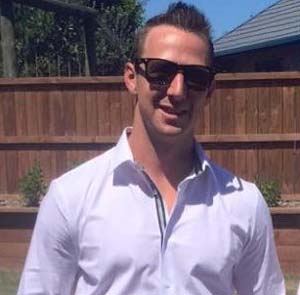How To Improve Sleep: 25+ Experts Share Their Helpful Tips
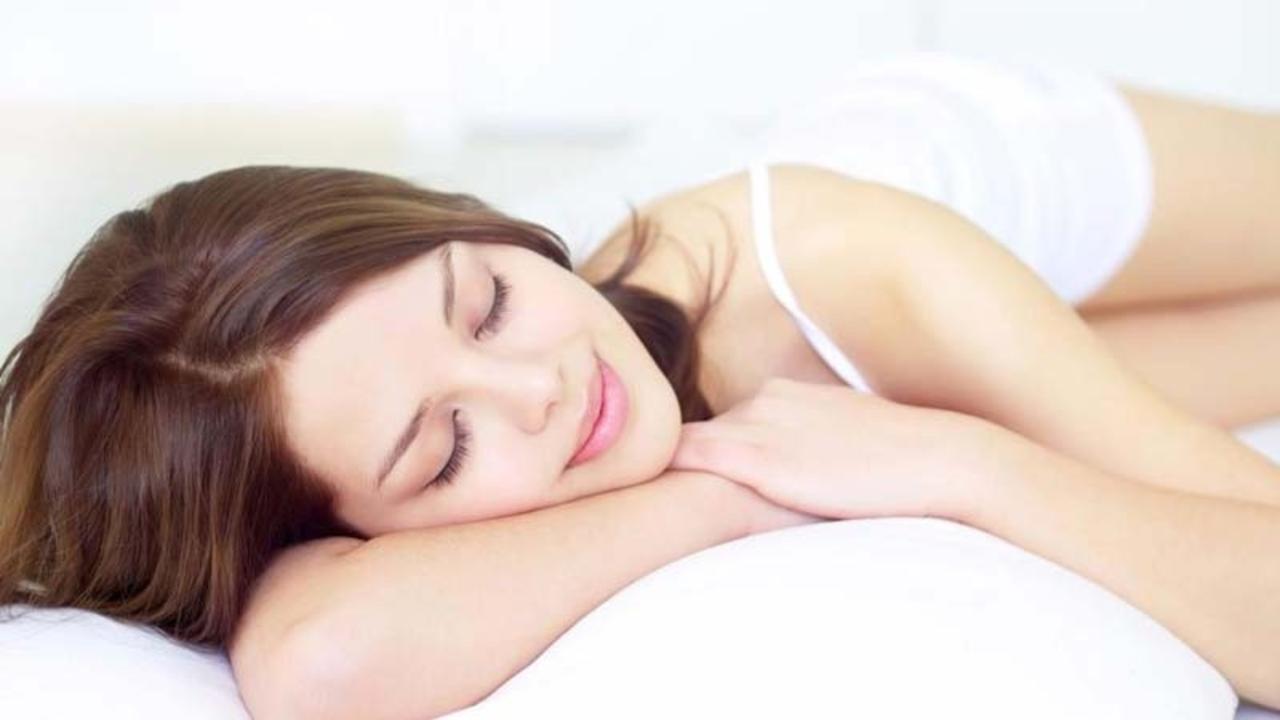
Sufficient quality sleep is a fundamental pillar when it comes to health, happiness and looking and feeling amazing. Yet many of us struggle with it.
I have written extensively on ways to improve your sleep quality in THESE articles. But I decided to hear what other sleep experts recommend when it comes to improving sleep.
I reached out to some of the top sleep coaches, sleep gurus, sleep consultants and sleep experts in the world and asked them three simple questions:
- What is their top supplement for improving sleep?
- What is their top item for improving sleep?
- What is their top tip for improving sleep?
Below I have shared their answers!
Read On To Learn How To Improve Your Sleep!
Ben Greenfield - Holistic Nutritionist, Health Expert at BenGreenfieldFitness.com

My top supp for improving sleep would be CBD Oil (cannabidiol Oil).
My top product for improving sleep would be Red light bulbs only in the bedroom; and my top tip for sleep would be a sauna session or hot bath followed by a cold shower at some point in the final 2 to 3 hours leading up to bedtime.
Jo Beth Dow - Co-Founder and CTO of SweetWater Health, LLC. A Leader in the HRV Industry.

My top sleep supplement is magnesium before bed. Excellent for your heart health also.
Top product for improving sleep? The SomniResonance SR1 - PEMF, FDA approved. I test many products to see if I can recommend them to my clients, most of them don’t work. I figured the same thing for the Delta Sleeper when I received it. It’s expensive also. I didn’t notice anything until the third night.
That was 2 years ago. Since then, I haven’t slept a night without it. My issue is waking up too early. When I do I hit the button and I get another complete sleep cycle. It’s a feather, not a hammer and it will start to condition you to be more responsive to it.
It works faster and much better on fit people. It takes more time for the product to be effective for people with years of insomnia and many drugs to help them sleep. They need to be patient. It takes more time to fix them and they can’t stop the drugs cold turkey. The company, SomniResonance, will work with them on it.
You can read more of my experiences at http://www.sweetwaterhrv.com/deltasleeper.shtml
Top tip for improving sleep?
- Go to bed early. It appears from studies that performance is greatly improved by the athletes (Dr. Holden MacRae, sports physiologist and prof at Pepperdine University) that went to be between 9:00 PM - 10:00PM. Even if the duration of sleep was the same, it was the timing of going to bed that was important. It has to do with circadian rhythms, deep sleep and recovery.
- Cold room
- Dark room
- Wear socks even in the summer
- Mental instructions to yourself when you close your eyes that you will not dream about work or anything stressful but will take the next 8 hours to recover peacefully. No thoughts about past regrets or future fear fantasies, just the present moment.
Jason Prall - Longevity and Optimal Health Practitioner & Creator of The Human Longevity Project Documentary Film Series

Jasons 3 most valuable tips for improving sleep are:
- Find your passion/purpose for waking up the next day. If you don’t like what you’re doing at your job or at home, you’ll consciously or subconsciously sabotage your sleep in order to perceptively prolong the night and avoid starting the next day.
- Strenuous short bouts of exercise prior to the evening and/or move constantly throughout the day.
- Avoid blue light at night (blue blockers and/or orange bulbs) + get daylight in your naked eyes in the morning.
James Swanwick - Entrepreneur and Founder of Swanwick Sleep and 30 Day No Alcohol Challenge
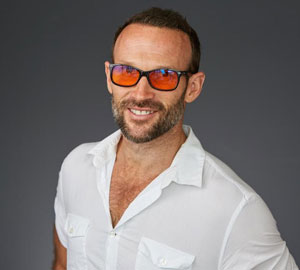
A really great supplement to improve your sleep is actually one made by my company, Swanwick Sleep. Better Nights Sleep Aid is our all-natural supplement.
Rather than relying on prescription sleep medication, Better Nights offers a non-addictive solution that includes melatonin, Holy Basil Leaf powder, magnesium and Pharma GABA that are all naturally occurring hormones and ingredients that aid and promote a great night of restorative sleep.
My top product for improving sleep is our signature product - our Swannies Blue Light Blocking Glasses - and they're our signature of reason because they work and improve sleep.
Best of all, they're a simple product to incorporate into your daily life. Even a small habit like remembering to put your Swannies on a few hours before bed and leaving them on until you're about to go to bed can make all the difference. (Code FERGUS saves you with Swanwick!)
What is your top Sleep Tip?
As an entrepreneur and frequent traveller because of my work schedule, sleep can easily fall by the wayside.
But you have to make time for sleep because it affects your performance - and you cannot compromise on it because it can affect so many facets of your own body, performance and life.
My biggest sleep tip is to make a routine that works for you. I'm mindful to work out and get exercise earlier in the day, make sure I expose myself to sunlight to keep my body clock in check for the night, and have a night routine that includes using my Swannies a few hours before bed and making sure I'm relaxed when I want to go to sleep. (Code FERGUS saves you with Swanwick!)
Fraser W. Lawrie, Ph.D. - Founder of the SomniResonance SR1 Sleep Device and CEO of NeuroLibra Biotechnology Corporation
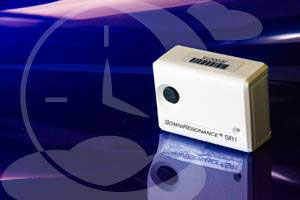
Top supplement for improving sleep?
Having spent a few years in the pharmaceutical industry and as a consultant in the vitamin & supplement industry, I believe people should discuss any and all supplements they intend to use with their healthcare provider. Just because a supplement is “natural” or available “over-the-counter” doesn’t mean it is safe to take in every situation. Any supplement capable of having a positive effect can in some cases have a negative effect. We should be aware of interactions between any supplements and prescribed pharmaceuticals.
Four regularly recommended natural supplements are: Chamomile tea, melatonin, valerian and kava. A brief review of the literature shows the following.
- Chamomile Tea; Generally considered safe but should not be taken by a pregnant woman or those who are breastfeeding. Those with allergies to ragweed should avoid chamomile.
- Melatonin: Generally considered safe however there appears to be an increased risk of bleeding particularly in those taking blood thinners. Melatonin also increases the risk of seizure.
- Valerian; Generally considered safe for short term (4-6 weeks) use. Reported adverse events include upset stomach, headache and morning grogginess. Valerian should never be used alongside alcohol or other sleep medications. These compound the effects of valerian.
- Kava; Kava has been linked to severe liver damage. A number of countries have introduced strict legislation regarding the importation, selling, possession and use of kava.
Your top product for improving sleep?
SomniResonance® SR1 Sleep Technology Device. Decades of clinical and academic research have helped to identify the frequencies naturally produced by the brain during the process of falling asleep.
The SomniResonance SR1 mimics these frequencies, allowing the user to fall asleep more easily. This copyright protected frequency pattern allows the user to cycle through the normal sleep stages of a natural night’s sleep.
Your top tip for sleep?
Fix your sleep hygiene.
Numerous factors can affect our ability or inability to fall asleep, stay asleep and our quality of sleep. Most sleep experts refer to the management of these factors as Sleep Hygiene.
The term Sleep Hygiene relates to developing a routine or habits that will help you fall asleep more easily, help you stay asleep and provide you with better quality sleep.
Tips to improve this include:
- Avoiding caffeine and alcohol 6 hours prior to bed
- Establish a pre-bed relaxation routine.
- Limit naps to 45minutes and no napping after 5pm.
- Finish your evening meal a few hours prior to bed.
- Avoid intense exercise in the hours prior to bed.
- Have a stable bed/wake time
- Make your bedroom as dark and quiet as possible.
Note: Dr Lawrie gave me some incredibly in-depth tips and answers. I will be publishing these answers in a second follow up article in the coming weeks. Be sure to subscribe to my email list to know when this goes live.
Trudy Northcott - Biohacker, Bulletproof

What is your top supplement for improving sleep?
I settle down at night much easier and quicker when I have my sleep fuel: Hot water, Bulletproof Collagen and Chocolate powder, raw honey.
If I have had a stressful day then I love Bulletproof L-Tyrosine and Sleep Mode for a better hit
Your top product for improving sleep?
Although I do love my devices and aids which include blue blocking glasses and bulletproof sleep mat my top one has been the Oura ring as this allowed me to see where my sleep lacked and when.
From this, I could focus my intent on getting this part of my sleep right. For me, this was my deep sleep. Where the real healing can take place.
My biggest and most successful sleep tip yet is not the obvious or the expected. Yet.. it's the most accessible to everyone.
That's is the simple act of settling down and confirming the intent to let go. By this I mean to let go of the day's events, thoughts and concerns.
Surrender them and ask ‘yourself’ to let go and have a deep healing sleep. This is also a time I often lucid dream and thus allow solutions to issues come to me in my dreams.. “IF” I set the intent. Having this also lets me feel like I’ve had a sweet nurturing treat.
Teemu Arina - Entrepreneur, Speaker and Biohacker. Founder of Biohacker Summit & Biohacker Centre. Co-author of the Biohacker's Handbook
I like Puhdistamo Triple Magnesium for improving sleep.
It includes Magnesium Malate, Magnesium Glycinate and Magnesium Taurate and no unnecessary fillers.
In addition to magnesium, it delivers other sleep enhancing benefits:
- Taurine is used by the body to transport magnesium ions into and out of cells through the cell membrane.
- Glycine has been found to increase serotonin levels in the prefrontal cortex, which may help to alleviate sleep issues.
- Malate provides magnesium for acetyl-CoA synthesis in the Krebs cycle and malic acid for malate dehydrogenase activity. These may provide pain relief, if that is an issue.
I would stay away from melatonin, as it has the tendency to overdose the pancreatic melatonin receptors and take blood sugar control out of order for the next day.
Your top product for improving sleep?
Flux on the computer, night mode on the phone and blue light blocking glasses combined make me go to bed earlier.
I also like to dose with curcumin latte for its anti-inflammatory and neurorestorative effects if sleep deprived.
Your top tip for sleep?
Traditional Finnish wood-heated sauna combined with a dip in ice cold water or cold shower greatly resets the nervous system, activates the parasympathetic nervous system, removes muscle tightness and clearly makes sleep significantly deeper.
When combined with sleeping outside of the city in nature and preferably in a colder environment with nature sounds around, there is no better way to recover and sleep like a baby.
Patrick McKeown - Author, Researcher & Breathing Coach for Sleep, Anxiety and Breathing Pattern Disorders at ButeykoClinic.com
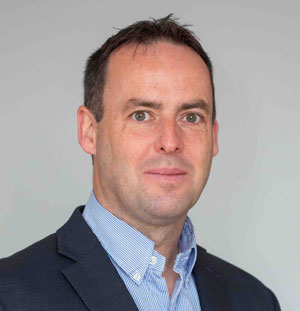
The importance of nose breathing is vital for a good nights sleep. Here is a recent article published in the Australian Financial Review on this subject - If You Are A Mouth Breather Close Your Lips And Read This.
Top products I recommend for sleep are Mute Snoring and LipSealTape as it dilates the nasal passages and ensures nose breathing during sleep.
The key to a good nights sleep is to breathe light for fifteen minutes before sleep. Place Mute in nose and LipSealTape across the lips.
Top Tips For Sleep Improvement?
- Practice reduced breathing 15 minutes before you sleep. Place one hand on your chest and one hand on your tummy. Gently soften your breathing to create a slight need for air. Continue with this exercise for a period of approximately 15 minutes. Not only is it an excellent way to help with sleep-disordered breathing, it also helps you relax and fall
asleep easier. - Avoid large meals and drinking alcohol late at night
- Avoid Sleeping on your back as this position is proven to increase snoring and sleep apnoea
- It is vital to breathe through your nose during sleep. You can tell if you have been
breathing through your mouth at night as you will wake up with a dry mouth (and
most likely smelly breath – mouth breathers have a higher level of gum disease and
teeth cavities than nasal breathers!). Your mouth should be naturally moist when you
wake up in the morning; nasal breathing ensures this. If you have a tendency to
mouth-breathe during the night it is important to apply the guidelines on taping the
mouth below. - Taping the mouth at night initially may seem like a scary prospect but it has been used
to great success in Buteyko Breathing clinics around the world and does not take long
to acclimatise to. If you struggle to keep your mouth closed at night, placing a short
length of Lip Seal tape across your mouth before you go to sleep is an excellent way
to eliminate sleep disordered breathing and encourage permanent nasal breathing. I
have no doubt that the single best thing I ever did to improve my sleep was to tape my mouth at night.
Also remember, persistent mouth breathing during childhood increases the risk of lifelong sleep apnea as it alters the shape of the jaws and airways.
Note, for more great tips from Patrick McKeown, be sure to check out his book Sleep With Buteyko : Stop Snoring, Sleep Apnoea and Insomnia. Suitable for Children and Adults
Andrew K Fletcher - Originator of Inclined Bed Therapy at InclinedBedTherapy.com
Your top supplement for improving sleep?
Gravity. It's free.
Your top product for improving sleep?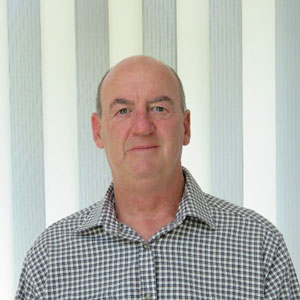
Inclined Bed / Furniture Risers, Books, Bricks, Wooden Blocks used to raise the head end of a bed. You can read more about this HERE and how high to raise a bed depending upon bed length HERE.
Your top tip for improving sleep?
Stay off flat beds - Avoid flat bed rest syndrome.
Other tips include:
- Avoid memory foam mattresses. The best mattress is a natural fibre spring type. Use only one pillow. Memory foam causes us to overheat and sweat, it also dips under our weight and causes backache and pain.
- Rotate your posture during the night and best to sleep without underwear, due to it riding up while sleeping inclined.
- Avoid sleeping with hands near pillow as this will cause numbness as it compromises circulation, which validates IBT theory
- Use cotton sheets. Wrap a duvet or blanket around your mattress to prevent slipping down. Not a problem for most, but some do take time to settle in.
- Keep a journal to note all changes, to help understand what is happening with sleeping inclined and please help Dr J.P Torre at www.yourmedicalresearch.com/ Who is conducting an independent analysis of the many effects reported from people with or without health issues and sleeping inclined.
- Inclined Bed Therapy increases fertility and has been shown to correct erectile dysfunction. Be warned unless your planning for a baby.
- IBT - Drug requirements can change, especially in Diabetes and Parkinson's so please monitor for changes.
- IBT - Blood pressure has been shown to move in both directions, so please monitor for changes.
Scott Compton (AKA Scompy and Myster Spock); Founder at EMF Warriors and Mitohacker
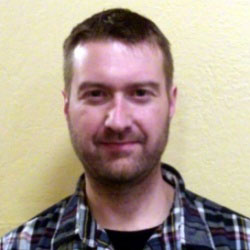
My main supplement for sleep is fasting. I have found there is nothing better than omitting foods past 5pm (if I go to sleep by 10pm) to make a person a bit more sleepy.
I will also load up on more Potassium-rich foods, like a salad, if I happen to get more than a 15 hour fast until the next breakfast. I purposely omit foods after dark to reduce glutamate and increase my GABA potential.
I will never take exogenous melatonin.
I have eliminated all caffeinated sources from my diet; for replacement of flavor, I use Roma which is a dark rye blend in the day instead, and typically add coconut oil with a bit of grassfed butter.
In the evening, I often have tea like Lemon Balm or Nettle. Both help with more GABA formation.
I use the IRIS tech blue-blocking program at home and at work, but I will not rely fully on it.
I have Blue-blocking glasses that omit the 400nm to 500nm wavelengths and I wear them in the last 2 hours (or longer) before I go to sleep.
I also remove all screen-time at least an hour before sleeping, will not have a mobile phone conversation, and elect to read a book or do a few light chores.
Your tip for improving sleep?
My room is extremely dark at night with curtains, but also frequency-silence.
Other forms of light, aside from the blue to green color spectrum, can be disruptive to sleep that many biohackers are not aware of, which includes our modern hijacked frequencies that typically fall between 100 Megahertz to 10 Gigahertz, but also the powergrid that emits 60 hertz Alternating Current.
Be sure to check out the book 'In the Dark' by Jason Bawden-Smith for more on this.
Both lower frequency and higher frequency bands have been shown to have an alteration to our melatonin production.
My home is hard-wired, so I don't have Wi-Fi. I shutdown my phone at night or put it in Airplane mode.
I also turn off several circuit breakers: the breakers around the room where I sleep, but also know a few other breakers that add to a little more stray voltage into the sleeping spaces.
This past year, I changed out my metal boxsprings with a wood one and have a foam mattress so I am not sleeping on a virtual antenna.
Sun-timing is critical for circadian health, especially in the morning. For the past 3 years, I habitually get outside in the morning right after waking up, preferably at dawn or in the hour after.
I spend at least 10 minutes and often up to 30 minutes walking or reading (while grounding).
I will go outside in shorts to expose more skin. I used to overlook setting the circadian rhythm with the sun (even on a cloudy day) and my sleep suffered more.
Look up POMC gene and how we are built to be addicted to sunlight. If I am overly-anxious in the evening or have a harder time sleeping, I will ground-myself outside on a nearby rock for at least 10 minutes.
My typical sleep cycle: Start winding up the evening by 9pm, asleep by 10 to 10:30pm. Up in the morning around 6:30 to 7am.
Brock Armstrong - Coach, Author and Podcaster - Learn More At www.brockarmstrong.com/
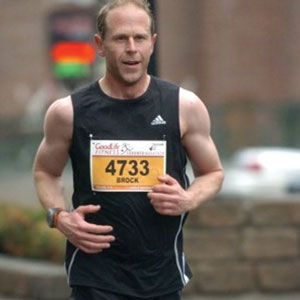
Your top supplement for improving sleep?
Honestly, I have not found a single supplement that actually works consistently (and I have tried them all).
If your mind is busy, you won’t get to sleep.
If you get to sleep but your mind is still busy you will wake up in the night.
The only thing that helps me is to quiet the mind using breathing, meditation and some advance to-do list techniques that alleviate the monkey mind midnight panic.
Your top product for improving sleep?
Ear plugs, a good pillow and good curtains are helpful but as I said before, they are no match for a busy mind.
You can block all the blue light you like but if that is not your sleep issue (and in my experience coaching hundreds of people, it rarely is) you can waste all the money you want on this stuff and you still won’t sleep well. Invest time in quieting your mind and you can save your money.
Your tip for sleep improvement?
Routine is key!
Having a consistent bedtime, spending time gearing yourself down an hour before bed, not checking email after you are “done for the day", not reading books about your job, and then doing some breathing, stretching and meditation, that is the stuff that gets you to sleep well.
Chris MasterJohn, PhD. Health & Fitness Entrepreneur. Specializing in Research, Education, and Consulting. Learn More at chrismasterjohnphd.com

Top supplement:
3 grams of glycine before bed. Try this, or try one serving of hydrolyzed collagen.
Top product:
The Lonfrote sleep mask. The cupped shape makes for much more complete blacking out.
My tip:
Getting a half hour of outdoor sunshine every single day around the same time every day.
Dim the lights for 2-4 hours before bed, and consider getting specialized light bulbs that warm the colors and other ways of blocking blue light such as Swannie amber glasses and screenwarmers on your digital devices (e.g. Flux, Nightshift) during that same period. (Code FERGUS saves you with Swanwick!)
Always emphasize timing your brightlight and your blue light blocking at the same time every day to facilitate a consistent circadian rhythm.
Michael Smith - Naturopath & Blogger at Planet Naturopath
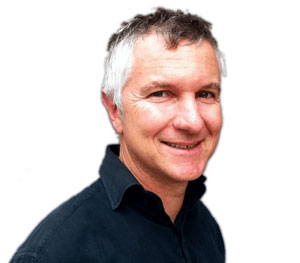
Your top supplement for improving sleep?
This is going to depend on "why" somebody is not sleeping, I always recommend optimizing a client's sleep routine first if they have not already done that before adding in some supplements, or I might start with something simple that everybody needs like magnesium.
If they have addressed diet (specifically blood sugar issues), improved their sleep routine etc and they are still having trouble sleeping I would look at doing the DUTCH hormone test to assess cortisol, melatonin and neurotransmitter levels (coming in the new DUTCH tests for 2018) to find out if the sleep issues are from a lack of melatonin or from too much cortisol.
If high cortisol is an issue find out what is driving that, this may be mental/ emotional stress or physical stress like blood sugar issues or gut infections. A supplement combination that works well for high cortisol is phosphatydlserine, bioactive milk peptides and inositol.
If low melatonin is an issue then a low dose melatonin (1-3 grams) can be a good short term solution why you address the underlying cause of the low melatonin.
One of the biggest causes of low melatonin is exposure to artificial light at night and a disrupted circadian rhythm so addressing the lifestyle factors is going to be the number one thing to do, if this has been done and melatonin levels are still low then supplements such as 5-HTP, tyrosine, vitamin D, zinc and magnesium can all help with melatonin production.
Your top product for improving sleep?
I mainly stick to standard recommendations like Blue light blockers, Flux, turning off wifi/ phones in flight mode before bed, rather than any fancy sleep gadgets.
But for anyone who mouth breathes at night I recommend a simple piece of tape across their mouth to get them into the habit of nose breathing, mouth breathing can affect sleep quality in a big way and is often not diagnosed unless it is the severe sleep apnea category.
Your top tip for sleep?
Minimizing light and screens at night especially in the hour or two before bed is my number one focus, meditation is great but if people don't already have a meditation routine I normally recommend breathing exercises as the best place to start.
Both the 4,7,8 breathing and Box breathing techniques slow down the breathing rate and prevent hyperventilation which can affect sleep quality.
Dr Josh Lamaro - Osteopath/Functional and Anti Aging Medicine Practitioner at PaleoOsteo. Founder of MitoGen
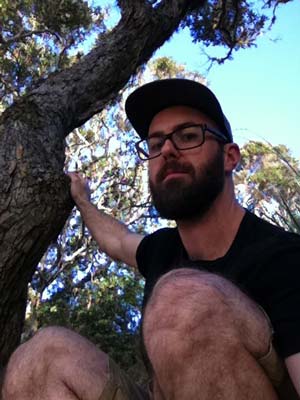
Your top supplement for improving sleep?
Salted honey.
This recommendation is for those with elevated cortisol that is not necessarily from light environment alteration.
Cortisol is essentially a glucocorticoid - it is stimulated when blood sugar drops in order to liberate glucose from stores or initiate protein breakdown to retrieve blood glucose.
The salted honey tends to have a nice effect in stabilising blood sugar and providing the minerals needed to calm the mineralocorticoid function of the adrenal glands, which stops one getting up for the toilet during the night if they are adrenally affected.
Your top product for improving sleep?
Blue light blockers are my go-to for improving sleep cheaply, however experiments with the PEMF device "earthpulse sleep on command" have been very very positive.
Your top tip for sleep?
Morning sun to sync the metabolic and circadian clocks, avoidance of artificial lights at night and generally a calm environment with very little stimuli of any kind will positively impact sleep experience.
Claus Pummer - Holistic Sleep Expert | Managing Director, SAMINA North America

Your top supplement for improving sleep?
My emphasis is on helping people get naturally healthy sleep. First and foremost, I focus on the physical environment, light, sound, smells, a non-toxic bed and clean bedding.
Secondly, they have to adapt some sleep-friendly behaviours like having a regular sleep/wake cycle and a bedtime routine.
One thing I encourage people to do before going to bed is to bathe or shower. Not only is the warm water relaxing, but it also helps cool the body getting it ready for sleep.
As important, it also helps rid you from any negative energy you encountered during the day as well as germs, pollens and dust so you don’t bring them into bed with you!
When people get these things right, sleep often improves so much that people often don’t need supplements.
When they still need help relaxing, I recommend the amino acid and neurotransmitter, glycine.
Multiple medical studies support that glycine has reduced fatigue and improved sleep quality.
Your top product for improving sleep?
I personally believe that what we sleep in/on is extremely important to the quality of our sleep.
Think about it.
If you are a pro tennis player, your racquet matters. If you are a race car driver, your engine matters. An IT programmer, your PC matters. You get it. Whatever it is we want to do with excellence, requires we have the right and most excellent tools to do the job.
That’s how I look at the bed!
It’s an extraordinary fact to consider that by the time you turn 75 years old, you will have (or should have) slept about 25 years. This is how important sleep is to your life.
Compare sleep to virtually any other activity - eating, working, watching TV, going to the gym, reading, and so forth - there is not much we do more than sleep except breathe!
That’s why I am so passionate about what people sleep on and that their bedroom is a true sanctuary for sleep.
I have personally been sleeping on SAMINA healthy sleep system, an organic and orthopedically designed layered mattress, for just over 20 years.
The brilliance of the design incorporates sleep science and harnesses the power of nature to ensure an optimal sleeping environment.
There is no other product that has helped people live a better, healthier, pain-free life than this healthy sleep system.
Most mattresses are closed systems effectively trapping moisture and encouraging dust mites, bacteria, and even mold to grow in your bed! What are people sleeping on and what’s inside of it?
You check the ingredients on food labels but we don’t pay much attention to a mattress label where you will find things like polyester (doesn’t breathe), petrochemical derived synthetic foams (think about toxic levels of dichlorobenzene, a standard ingredient in foam) which recently caused panic in Europe), and drenched in flame retardants.
You can read more about SAMINA on my website, www.Saminasleep.com
Your tips for improving sleep?
# 1 – Prioritize your sleep!
Sleep is not an after-thought. Take it seriously.
Plan your day to include sleep – when you go to bed and when you wake up.
Sleep literally impacts everything you do, say, think, feel, everything about what you do and how you do it.
Much like your nutrition or fitness plan, your sleep should take some planning.
When sleep isn’t a priority, it never fails that people shortcut the hours they really need.
And to do what? Watch more TV? As I said, it’s comparable to how you treat nutrition and fitness; when you don’t prioritize them, it’s really easy to eat wrong foods or skip that workout.
In fact, one of my big tips to help prioritize sleep is to set an alarm…to GO TO BED!
#2 – Make your bedroom a sleep sanctuary.
Today’s bedrooms have become social media havens, an extension of the office, TV rooms, playrooms, there is a lot going on in there!
They are filled with electronics and all sorts of other distractions. The room where your bed is should be your sleeping room, a sanctuary from the rest of your busy life.
This room should be about sleep and sex. Not much of anything else. And when you go to bed, it shouldn’t be to have a snack or play video games. Your bed is for sleeping.
#3 – Limit exposure to light and electro-smog.
When you prioritize your sleep, you will have a dedicated space and place for sleep. One of the biggest issues I see from visiting 100’s of homes each year is that people permit too much light into their rooms.
Our DNA is hard-wired for thousands of years and it is why our Circadian rhythm works much the way it does not only for us but for most of the animal kingdom.
Think about it, most of God’s creatures sleep when the sun goes down and awaken when the sun comes up.
We have created artificial daylight indoors that fools our bodies; it’s really no wonder that modern society is plagued by sleep deprivation and disorders.
Any and all artificial light is disruptive to our natural sleep patterns including, for example, light peering in from cracks in curtains or blinds, all those little lights emanating from our clocks, TV’s, cell phone chargers, cable boxes, nightlights, you name it.
So blackout your room at night and get rid of those electronics! When your cell phone is your morning alarm, at least turn it on airplane mode. Try it. You will get a deeper, more restful sleep without these nuisances.
Chuck Hazzard - Biohacker, Sleep Wearable Geek and Endurance Athlete

Top Sleep Supplement:
I have not found any sleep supplements which improve the quality of my sleep. I do take a fair bit of magnesium per day which eliminated the leg cramps which frequently disturbed my sleep.
Top Sleep Toys:
The EarthPulse PEMF system has provided the most benefit to my sleep. I set the power output in Gauss to what the Earth produces at the surface and use the 9.6Hz frequency.
And I know you only asked for one product, but my Essentia Mattress and Chilipad (click THIS link - discount available on website) tie for a close second. The Essential has dramatically boosted my REM and the Chilipad my overall sleep quality (I like being cool while sleeping).
And finally, my REDjuivator Red Light panel has helped boost deep sleep (20 minutes on the chest prior to sleep).
Top Sleep Tip:
Routine - Being consistent as to when you go to bed and wake up each day is the largest mover of sleep-related health. The new Oura ring will identify the optimal time when you should go to bed. You just need to figure out how much sleep you need.
Daniel Georgiev - CEO & Founder of Iris Technologies EOOD Specialising in Eye Protection Software

Supplements:
Drink Chamomile tea 1 hour before going to bed
Product:
Use standard Incandescent lightbulb instead of LED lightbulbs. Although not so energy efficient the blue light emitted from LED lightbulbs combined with the PWM of them is not worth the risk. Use Iris or other blue blocking software on your computer.
Tips:
- Take a hot shower 2 hours before going to bed.
- Stick to a fixed sleep schedule and sleep at least 7 hours every day.
- Exercise regularly even for 10 minutes.
- Avoid bright light before going to bed
Dr. Anthony G Beck - Functional Medicine Doctor and President & Founder Balance Protocol Institute
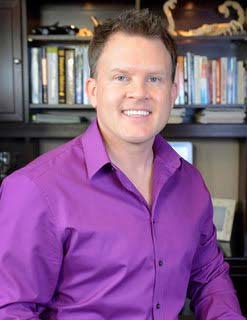
We are all born into and are DNA wired to have profound sleep. It is only when we allow aberrations in lifestyle and environment to disconnect us that quality sleep escapes us.
The Balance Protocol for sleep is all about being in rhythm with the light cycle of one's geographic location and then creating an internal and external environment conducive to induction into a state in which the body enters into it's divinely created potential.
It begins with one's mindset and it must be that they claim ownership of their sleep, hold it sacred, bestow it with the highest value to where nothing can obfuscate it and it takes precedence over anything else.
So what does it take to achieve this?
- Get plenty of sunshine during the day and avoid indoor artificial light including any powered device for 2 hours prior to bedtime.
- Have some casual conversation or read on a topic that is inspiring and enriching devoid of conflict or worry so as to calm the minds inner chatter.
- Some activity that gets the body moving but not putting overt taxation on the muscles such as a brisk walk or some light callisthenics.
- A tummy full of a nice meal balanced with healthy sources fat, protein and carbs washed down with a glass of water.
- Get outside for some fresh air and/or open room to allow a brief exchange of room air volume.
- Dress your bed for the occasion with linens that are smooth, soft and comfortable to omit frictional tension and providing some down weight on the body.
- Increased body temperature via bathing and/or orgasm.
- Have a seat and take a moment to empty bowel and bladder.
- A room that is cool (<72 degrees)
- A room that is dark and free of any light intrusion.
- A room that is quiet and free of audible and low frequency infra-sound.
- Clear the room from sources of EMF by turning off all emitters of radio frequencies and flip off all electrical breakers that energize circuits in the room walls so ensure no increases in body voltage or disruptive magnetic fields.
- Cover and swaddle yourself with only natural material to maintain ones warmth.
- Repeat this process each and every time. Practice and preparation makes perfect.
Once you set your sleep to be of the highest value, create your inception sequence, maintain a sleep sanctuary and stay consistent with the process....bliss awaits thereby making all the pills, potions, powders, gadgets and gizmos become exactly what they are...distractions and gimmicks.
Let's Live Life in Balance!
Tom Moorcroft - DO Osteopathic Physician at www.OriginsOfHealth.com

My top supplement for improving sleep:
Liposomal melatonin.
This is melatonin that is shoved into fat lobules. It aids in GI absorption and is felt to be absorbed into the brain better. I find that it works better than regular melatonin and has much less of that melatonin hangover.
Many times people wake up feeling like their head was run over by a truck after melatonin use. With liposomal melatonin, mornings are much more pleasant.
You tend to want to stay in bed longer because your pillow and bed feel so nice and you're enjoying restful, rejuvenating sleep, but you're able to get up much more easily than regular melatonin.
I use BioPure liposomal melatonin primarily, but Davinci labs also make a nice product.
My top product for improving sleep:
My top product for improving sleep is the Lokosana grounding pad by SAMINA which creates a mini-sleep sanctuary, protecting you from surrounding negative EMFs while connecting you with the planet.
This connection provides nourishing negative electrons that helps improve cellular communication and turn off inflammation.
My favorite sleep combo is the Lokosana and inclined sleep. Sleep position plays a significant role in brain detoxification as does getting a good sleep in general. For more on my top 5 brain detox tips head to OriginsOfHealth.com
My top tip for improving sleep:
My top tip is: Turn off your wifi and keep your cell phone outside of your room (or at least in airplane mode). EMFs are often the cause of restlessness sensations and an inability to calm down.
Many people who suffer from insomnia will see significant improvements in sleep within 2-3 weeks of turning off their wifi at night (sometimes much sooner).
Make this automatic, put your wireless router on a timer so you set and forget it. When it's time for bed the wifi is automatically turned off.
Plus all the things you've mentioned.
Going to bed at a consistent time as well as waking at a consistent time.
Relaxation away from screens, preferably a form of meditation.
These are simple, free tips that can dramatically improve the quality of your sleep.
I think a key point to understand is that ~90% of brain detoxification occurs while you're sleeping and deep, slow wave sleep seems to be the most important phase of sleep.
Anything that disrupts your normal sleep cycle has the ability to decrease your short and long-term brain health (read: brain fog and Alzheimer's disease).
Lack of sound sleep leads to change in the gut microbiome which may increase body-wide inflammation. This can lead to symptoms the further disrupt sleep.
The gut directly influences neurotransmitters, such as serotonin and GABA, and brain plasticity factors. So, alterations of the microbiome can lead to changes in mood, cognition and sleep.
Sleep can often be improved by simply removing processed foods from the diet and allowing the gut to return to a more natural state. The feedback loops between the gut and the brain that regulate sleep are numerous, but these simple, effective places to start.
In my practice, I find patients commonly try all the fancy things and miss the simple foundational aspects of health.
Dan Pardi - MS, PhDc, CEO of humanOS.me, Host of HumanOS Radio and World Renowned Sleep Expert

Your top supplement for improving sleep?
I have used an eye mask and ear plugs every night since I was in college. I still do today!
Perhaps surprisingly, I do take Ambien on occasion when I travel overseas. It helps me sleep on nights where I otherwise would not be able to sleep. But, I take probably fewer than 5 pills per year… maybe less.
I do take a low dose of melatonin regularly. I think we have a darkness deficit in our world so adding the darkness signal to the brain helps align circadian rhythms. I take 300 mcg when I know I'm going to get more bright light exposure in my evening (when my lighting environment is not under my control).
Your top product for improving sleep?
For me, tracking my bedtime and sleep period has been a helpful daily behaviour over the last few years.
I've been using a Fitbit that whole time and while simple, it's useful. Never underestimate the power of simple applied over time.
Here is how the Fitbit data looks in the humanOS.me Dashboard tile. Simple but focused.

Your tip for sleep?
I have a specific goal to be in bed by 11:30p. That is clear in my mind. I get into bed between 10:30p and 11:30p and either read or organize thoughts for the next day.
During the day, I get at least 30 min of outdoor light exposure and in the evening I modify my light environment to the degree I can by dimming lights throughout my home.
At night, I keep my room dark but don't worry about it being pitch black (after all, I use my eye mask), and I love sleeping in a room that is 65 degrees F.
I also maintain a regular physical activity practice getting a solid level of physical activity week after week; here's proof (Activity Dashboard feature looking at monthly avgs of physical activity for one year):

For reference, 100% equals the US Dept of Health and Human Services weekly exercise recommendations.
Here are the sleep shows from my podcast: https://soundcloud.com/humanosradio/sets/sleepos
Daniel Ebbett - Sleep Hacker & Owner of BlueLightBlockers
![]()
Your top supplement for improving sleep?
Passionflower extract - amazing for calming the mind and increasing GABA naturally
Your top product for improving sleep?
Blue Light Blocking glasses - Hands down one of the best products to improve sleep (and one of the cheapest!)
Your tips for improving sleep?
- Go to bed and get out of bed the same time every day, including weekends (no sleep-ins sorry!) - This is a big one!
- Get outside within 30mins of waking up and look towards the sun.
- When the sun goes down at night block blue light by using blue light blocking glasses and low blue lights such as red led night-lights.
Bob Troia - Entrepreneur/Biohacker/Citizen Scientist and Founder of QuantifiedBob.com
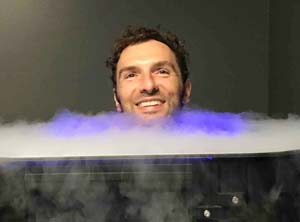
Your top supplement for improving sleep?
For deeper/restorative sleep I like to make a tea with reishi mushrooms and ashwagandha, taken with some CBD oil.
And this might be a bit controversial, but my data shows I get the most REM sleep after having a few glasses of wine (in moderation).
Your top product for improving sleep?
I use a NanoVi device in the evening while unwinding before bed and it puts me right to sleep. (I've written about my experience on my website here).
Your top tip for sleep?
Fresh air is key - if you keep your bedroom door closed you may notice a decrease in air quality as CO2 levels rise overnight, which can disrupt sleep.
Try doing some light exercise before bed - for example, a few minutes of wall sits or planks.
Petteri Lahtela - CEO & Co-Founder of Oura Ring

Top sleep supplement:
In our family, we apply a natural way of living as possible. For us it means among others the following:
- Living in a log house in a peaceful environment (with hard-wired LAN and optical fibre providing high capacity internet access),
- Eating mostly organic food including e.g. moose meat, wild fish, vegetables, roots, berries, dried berry powders, nettle, dandelion and chaga, and organic butter from the very pure nature of northern Finland. In addition to those, in cooking, we use e.g. coconut oil, olive oil, turmeric, ginger and honey, and apply the best methods to maintain the nutrients of the food e.g. like preparing the fish in steam oven and meat in the slow cooker in low temperature. We also prepare everything gluten-free.
- Excellent quality ground (spring) water,
- Spending time and walking/hiking in nature whenever possible.
Therefore I try to minimize the intake of supplements in general. However, I take good quality magnesium (like e.g. Puhdistamo Triple magnesium) to help relieve stress reactions, high quality fish oil, hempseed oil and Vitamin D since here in Finland we get enough sunlight only during summer.
Top product for improving sleep:
As creators of the product, we naturally have extensive access to very deep data and insights we can derive through the data alongside the research we do both in our company and with our research partners.
Our passion is to bring more understanding on what restorative sleep actually means from the physiological and biological perspective i.e. what happens in our body and brain during the restorative sleep, and what it means for each individual person in the context of normal daily life.
During the last five years, we have learned so much about the real meaning of sleep i.e. the importance of getting enough restorative sleep every night.
Also having active users already in over 50 countries worldwide we have learned how unique we all humans actually are, how our body responds to our unique lifestyles, how well each individual can recover from daily mental and physical strain we face each and every day and what would be the optimal ways for each person to improve sleep and recovery to maintain good health and performance.
The Oura ring has helped me for example to
- Find my optimal bedtime and best evening routines to ensure restorative sleep, e.g. what to eat and when, what is the optimal time for sauna and cold exposure before sleep (which I do every night), and what other things work for me when winding down before sleep,
- Understand and validate the optimal timing, duration and intensity of exercise each day based on my readiness level and for ensuring good quality sleep the next night,
- Explore and validate the best routines to prepare mentally and physically for non-optimal working times like having podcasts or calls in the evening (which are challenging to me since I am a morning person) and how to wind down after such events to ensure good sleep.
- See the benefit of meditation, breathing exercises, intermittent fasting and using tools like bluelight blockers, f-lux and other tools and methods in ensuring restorative sleep.
The top tip for sleep:
The uniqueness of each individual brings up the fact that each one of us needs to find out and validate our own ways to improve sleep - the same advice does not apply to everyone.
Different chronotypes, e.g. morning person and evening person have a big difference in optimal times for sleep, exercise and even meals.
Circadian alignment in relation to your chronotype is very important since living in constant jetlag is a big stressor for your body.
Also your genotype and phenotype (how your genes express themselves based on your lifestyle) affect e.g. how well your body metabolizes caffeine or your meal in the evening before you go to sleep.
Based on this my top tips are:
- Find out your chronotype and how you can keep up with your circadian alignment.
- Find and maintain your optimal rhythms, like optimal bedtime and constant wakeup time as well as evening routines to ensure the most restorative sleep.
- Explore what kind of a meal and how many hours before your sleep would be best for you. If your digestion system is still up and running when you should enter the deepest sleep, you’ll not get enough restorative sleep.
- Move in relation to your readiness level on a daily basis. If your mental load is high it’s no use stretching your limits also physically the same day. It’s better e.g. to take a good walk in the afternoon or evening instead. Validate the optimal timing, duration and intensity of your exercises based on your body’s responses i.e. sleep pattern, night time resting HR, HRV, breathing rate and body temperature variation.
- Try to get enough natural light exposure depending on your chronotype on daily basis to keep up with your circadian alignment.
- Sauna, cold exposure and/or a breathing or relaxing exercise, or meditation a couple of hours before your sleep may help to relax and prepare your body for sleep.
- A spoonful of honey just before your sleep may help ensure that your brain will have enough energy throughout the night so that you do not wake up too early. Sleep is an active state, especially for your brain. However, your digestion system should not be active when you go to sleep so that you can get enough restorative sleep.
The new Oura ring and app will help you to explore all these in the context of your own normal daily life.
Bret Bouer - Health and Detox Expert. Founder of the Smart Detox Group

Top Supplements:
I'm not a big fan of supplements, but these are my recommendations if you are looking for sleep supplements.
- Tart Cherries - these are loaded in melatonin. Melatonin in a pill has a very short half-life, but these cherries provide a time released form of melatonin due to their fibre content. This will help you fall asleep and get deeper sleep throughout the night.
- Tryptophan - Ideally you can consume this through diet. In particular Elk meat. Elk meat is rich in tryptophan, even higher than turkey meat. And most importantly it has all the other important co-factors that will help with sleep.
- Magnesium - It has just been discovered the EMF’s act by loading the cells with calcium by opening the voltage gated calcium channels. Since non native EMF exposure is known to disrupt sleep. Therefore it is important to mitigate the effects of EMFs. Magnesium blocks many of the damaging effects of EMF exposure as well as helping your muscles to relax and provide a great night of sleep.
Top Products:
EMF reducing products. As EMF exposure reduces melatonin.
So anything you can do to decrease your exposure to nnEMF - which is the new smoking, it's that bad for us - is going to benefit your sleep.
Things like cell phone shielding cases help, and when using your phone be sure to use speaker mode or airtube headsets. I like the Kinden airtube headsets.
Another inexpensive product to help reduce your nnEMF exposure and improve your sleep is a wall timer. You can use this the timer on your wifi router so it will turn off at night and turn back on when you wake up.
My final product recommendation to help with sleep is a light lux meter. In order to set a proper day/night circadian rhythm, you need early morning sunlight of 1000 lux or more.
The only way to know how much 1000 lux is by measuring it. Once you have a lux meter you will quickly learn that the light outside is 10-1000 times brighter than it is indoors. Early morning outdoor light will help you to wake up and sleep better at night.
When you have a lux meter you can go outside to find out when there is at least 1000 lux's of light. You then should go outside at about this time each morning to help set your circadian rhythm - which is not only essential for optimal sleep, but for health as well.
My final product recommendation to help with sleep is a lux light meter. These are only ten or twenty dollars and help show you how much light you are being exposed to.
Outdoor light is almost 100x, sometimes 1000x times brighter than indoor light. And in order to suppress melatonin, you need bright light in the morning - in particular, 1000 Lux of light.
If you have a lux meter you can go outside to find out when there is 1000 lux's of light. You then should go outside at this time each morning to help set your circadian rhythm - which is not only essential for optimal sleep, but for health as well.
That light will send a signal to the body that it's day time and melatonin should be suppressed.
Finally, I recommend using Blue Blockers and a blue blocking app for all electronic devices in the evening to help boost melatonin levels.
Top Sleep Tip:
Experimenting and keeping a journal.
It's important to track how activities in your day impact your sleep. For example, some people find an evening sauna helps with their sleep, others find the opposite happens. The same is true with exercise timing.
If you keep a journal and track your activities and sleep, you can then find correlations between your daily activities and your sleep quality.
Alex Fergus - Health Coach, Blogger, Sleep Geek & Founder of SoundAsleepCourse.com and author of The Ultimate Guide To Deeper Sleep
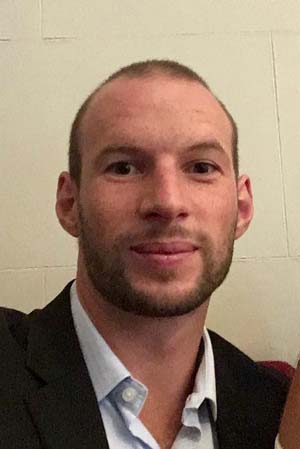
My top supplement for improving sleep?
I share similar views to many of the experts above.
For your best sleep, you need the fundamentals in place, not a supplement. These fundamentals include:
- Making sleep a priority
- Having a regular bedtime
- Good diet
- Good sleep hygiene
- Good sleeping environment
- Quite mind
But I have seen some clients benefit from the use of supplements. In particular Doc Parselys Sleep Cocktail (which I use when travelling), and CBD Oil (Which I would use myself if only NZ laws weren't so strict!).
My sleep is pretty solid, so I don't really need supplements to boost my sleep. But, there is one supplement I take every evening religiously, and that's Magnesium.
In particular it's Life Extensions Magnesium L-Threonate. Though I do like the sound of the Magnesium blend Teemu Arina mentioned above. I will have to try that.
My top product for improving sleep?
This is a tricky one. Though I don't use many supplements for sleep, I do use a lot of products.
Given this is an expert roundup, I figured I would share all my beneficial sleep related products:
- Blue Light Blockers. I wear my Blue light blocker glasses every night and have been doing so for many years. I used to get ridiculed for wearing them, but once you try them and experience how beneficial they are, you will be converted. And if you need more proof, check out my article on Blue Light and Sleep here.
- Ear Plugs. I want my sleep to be disruption free. I have been sleeping with ear plugs for nearly 10 years now.
- Blackout curtains. If you live in a city (or next to a flood lit car park like I did for 4 years) you need blackout curtains. Spend the money on upgrading them. Your sleep and health will benefit tremendously.
- Eye Masks. I use the eye mask from Swanwick Sleep. Even though I use blackout curtains I still want to minimise any light from hitting my eye, or anything disrupting my sleep. (Code FERGUS saves you with Swanwick!)
- Oura Ring. This is the most accurate sleep wearable I have ever used. It doesn't directly improve your sleep, but the data you get from the Oura Ring will help you learn what's working and what's not. It's a feedback tool that helps you improve your sleep (note, read my review HERE)
- Somnifix mouth tape. Patrick McKeown is the one who introduced me to this. And now I tape my mouth every night when going to sleep. Even if I'm sleeping in public on airplanes. It's helped me sleep that much!
- A slim organic natural pillow. I use Saminas thinnest pillow. I noticed the difference in my Oura Ring sleep score the night I got it. Now I take this pillow with me wherever I go! I love it, and so does my sleep.
- Finally, hot environments destroy my sleep quality. So much so that I moved countries to be in a cooler climate. When I was living in Sydney, I purchased a Chillipad (discount available on website when using taht link) and used that on hot nights. It made a big difference to my sleep quality score. But still, my best sleep happens in the winter time, snug as a bug under heavy woollen blankets!
Your tip for improving sleep?
My top tip for improving sleep is simple - make it a priority.
Until you make your sleep a priority, you will never truly fix your sleep.
All the supplements and biohacks in the world are only band-aid solutions without you prioritising your sleep.
If you are serious about sleeping better, then treat your sleep just like you would treat a specialist doctors appointment. Make time for it. Remember it. Make sure you're prepared. Make sure you're not late. Tell your family about it. Make sure they understand the importance of it. Plan your day around it.
Sleep is that important for your health and wellbeing. Once you experience regular solid sleep, prioritising your sleep is easy - you will WANT to prioritise it.
Until then, you will have to trust me and put some effort it. But I promise you it will pay off.
For more of my sleep tips, be sure to sign up to my free sleep tip email series at www.SoundAsleepCourse.com
Also, be sure to check out my book - The Ultimate Guide To Deeper Sleep
Found This Interesting? Then You Might Like:
- My FREE Sleep Resources Page
- How To Sleep Like A Sleep Coach
- How To Increase Deep Sleep
- The Ultimate Guide To Deeper Sleep
- Insider Health Secrets Revealed By A Top Health Coach
This blog post was written by Alex Fergus. Alex is a ISSN Sports Nutrition Specialist, Fitness Professional and certified Superhuman Coach who continues to expand his knowledge base and help people across the world with their health and wellness. Alex is recognized as the National Record Holder in Powerlifting and Indoor Rowing and has earned the title of the Australian National Natural Bodybuilding Champion. Having worked as a health coach and personal trainer for over a decade, Alex now researches all things health and wellness and shares his findings on this blog. Learn more about Alex's Credentials HERE.
Get FREE Updates & EXCLUSIVE Content
Join Over 30,000+ Subscribers!



